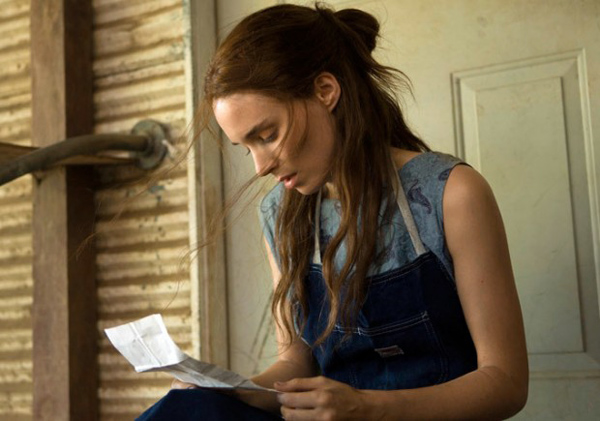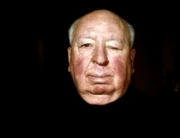It takes a filmmaker with strong courage to make what on the surface would appear as a simple crime film, perhaps a lovers-on-the-run story, into Ain’t Them Bodies Saints. It’s presumably about a young couple, Bob and Ruth, who are caught by the law. He takes the rap and goes to prison. She’s pregnant at the time, and later has a little girl.
Three years later, Bob breaks out of jail—why stay there any longer is his attitude. (He tells a guard, “I’ll just walk out the front door,” which gives a clue to Bob’s odd but interesting perspective.) He wants to reunite with Ruth and the daughter he’s never met, but he’ll first have to get through Patrick (Ben Foster), a genuinely nice cop, and Skerritt, an older man who runs the nearby hardware store and who has become a surrogate father for Ruth—he doesn’t want Bob anywhere near her, no way no how.
This is set in the 1970s somewhere in Texas, and it feels it. Lowery gets the setting right—where cowboys and outlaws may still roam around, but it’s also in modern times. This world is earthy and with lots of ambiance, like one might see in Terence Malick’s early films, like Badlands, only with more dark alleys.
But as far as Malick goes, that’s where I would end the comparisons (unlike other critics, as seen in a quick glance on Rotten Tomatoes, where some are calling Lowery the new Malick). Yes, it’s about two young lovers with strong accents and strong opinions struggling in the world, with a bit of narration from love letters, but it’s not poetic in that Malickian way. If it’s reminiscent of anything it’s Robert Altman’s Thieves Like Us (or by proxy Nicholas Ray’s They Live by Night), driven by a semblance of plot with poetic touches, but it’s also about the tenderness of love—so tender that it could probably break any moment if it hasn’t already.
Casey Affleck has come into his own playing oddball outlaws (Robert Ford, the sheriff from The Killer Inside Me). He makes you want to believe that Bob is sincere and that he has changed… or has he? Bob doesn’t strike one as a particularly angry man in terms of his violence, and the crimes he commit are never shown. Lowery starts off the film after Bob’s been in the thick of it, and in the first five minutes we see the shoot-out with the cops. Will he stop his criminal ways? Hard to say, but that doesn’t stop the folks around Ruth from warning him away from her or their child. Affleck brings out this conflict splendidly—that is, the conflict for others and not for Bob since he’s sure of what he wants. Almost eerily calm, Affleck rarely raising his voice and carries a certain raw intensity, especially when up against Keith Carradine, who comes off very well, too, kind of like an old outlaw gunman who has put up his belt but is still on his guard. Same with Ben Foster, who we haven’t seen in a long time playing someone this good-hearted and sincere. Normally he’d be a sneering villain, and this is a welcome change.
Among the cast, however, Mara quietly steals the film from everyone else. It’s not often I get this sense, but the camera seems to love her. She gives off a warm, exciting aura, as she has done in her previous movies. She plays Ruth as an intelligent, sensitive young woman who has grown in crucial ways since her carefree days and nights with Bob. The very simple scenes with Ruth and her three-year-old are exquisite, both for the subtle acting and the music, which is a little like Jonny Greenwood-lite in the use of strings. We see Ruth’s growth actually fairly quickly, and it could be almost a flaw that the director moves the storyline rapidly with the crimes, the baby being born, Bob’s three years in jail, and the breakout occurring within the first 15 minutes.
But the pacing isn’t an issue since we always have a sense in every scene, in about every shot, of who Ruth is and the complications she has to deal with if she lets her old flame back into her life. Bob made her feel happy but also put her in great danger.
Ain’t Them Bodies Saints works on the strengths of its characters and their conflicts, but the underlying sense of what is underneath the story is what makes it a small triumph. What Lowery asks—among the guns, murders, hired bounty hunters, and gunshots—is, where does love fit in? Can it wash away the darker side that people carry with them, that is certainly there in the flawed Bob Muldoon? This is a strong message at a time when American films carry so much senseless violence without any or much human connectivity. Here it’s all about that, and it’s the better for it.







Leave A Comment